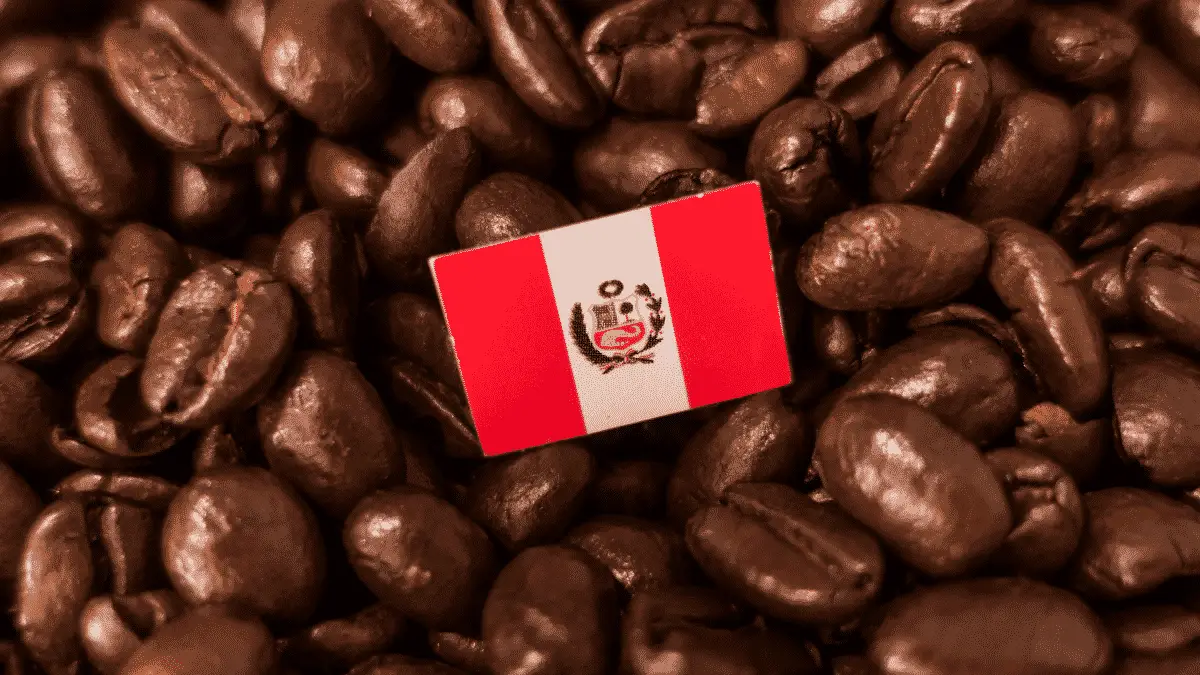Peru is one of the most beautiful countries in the world. Besides, as all coffee lovers know, it is home to one of the most delicious varieties of coffee beans.
Peruvian coffee is well-known because of its bold and distinctive flavor. It goes without saying that this precious drink is vital for the economy of the country.
With its distinctive sweetness and boldness, Peruvian coffee is one of the most famous drinks all around the world. If you want to find out more about how to help and protect Peruvian farmers, here you will find useful information about fair trade and co-ops.
The History of Peruvian Coffee
Machu Picchu and the Sacred Valley are only some of the many places that remind us of the story of Peru and the incredible Incan Empire. But what about the history of Peruvian Coffee?
Peru’s first coffee farms appeared in the 1700s. The microclimates of the Amazonian forest provide the perfect environment for coffee trees to grow well and strong, making it easy for farmers to harvest this product. However, Peruvian farmers seemed more interested in consuming coffee beans as a domestic product rather than exporting it.
How Coffee Became the Key of the Peruvian Economy
After two centuries, in the early 1900s, European travelers arrived in Peru and they immediately fell in love with the boldness and sweetness of the coffee beans harvested in this country.
Businesspeople from all around Europe started investing in advanced technologies and infrastructure to make Peruvian coffee ready to be exported. It was just a matter of a few years before coffee became over half of Peru’s export.
Today, Peru is one of the largest coffee producing and exporting countries, and its Arabica coffee is one of the most appreciated by those who cherish this drink.
Characteristics of Peruvian Coffee
When it comes to Peruvian coffee, there are many flavor profiles you can try. However, only the best Arabica beans are chosen to become the bold drink that we all love. These are some of the characteristics which make Peruvian coffee so delicious:
- Medium, full-bodied roast
- Complex floral aftertaste, with smokey or nutty overtones
- Clean and bright finish
- Easy on acidity
What Does Peruvian Coffee Taste Like?
Almost all coffee beans that are harvested and exported in Peru are Arabica beans.
This coffee variety is typically sweet, with a bright and mellow flavor. Arabica coffee is mild in acidity, and has a smaller caffeine amount than other varieties.
Since the majority of small farmers do not have access to chemical pesticides or fertilizers, Peruvian coffee beans are usually organic. This helps preserve the original flavor of the coffee, and beans will release their light and vibrant taste when brewed.
Because of its sweeteners, Peruvian coffee is perfect to drink as a black coffee or espresso, or can be enhanced even more with additional flavorings.
Peruvian Cold Brew
Arabica coffee owes its success to its sweetness. Besides, this light roast is low in acidity, making it the perfect drink for those who suffer from digestive issues or who usually avoid strong coffee.
It does not surprise that Peruvian cold brew is now one of the most popular drinks. This organic blend is available in many stores and coffee shops and can be enriched with additional flavorings. However, we recommend keeping it black and simple. This is the best way to really enjoy their distinctive flavor and understand what makes these beans so different from any other coffee variety.
You can either buy ready-made Peruvian cold brew or grind your own at home following your favorite brewing method. Don’t forget to stick to the recommended coffee/water ratio and brewing times, since you surely don’t want to jeopardize the great taste of your Peruvian cold brew.
Pasado, The Original Peruvian Cold Brew
Brewing and drinking coffee is a serious business in Peru, especially if you are seeking a quick caffeine fix.
Just like Italians have their espresso, Peruvian coffee lovers can enjoy their café pasado.
Among the beautiful Amazon villages and the remains of ancient cultures, lies the secret for the perfect coffee. Here, Peruvian farmers wake up every morning ready for their favorite breakfast: pork rinds and sweet potatoes, and pasado.
This is an interesting variation on drip coffee, which requires a two-chambered coffee brewer with a filter. The finest Peruvian ground coffee and hot or cold water are added to the top chamber. The brewed coffee concentrate is collected at the bottom of the brewer. Since Peruvian coffee is usually sweet and mild, this concentrate can be enjoyed as it is, or diluted with milk or water to create yet another variation on americano or your average latte macchiato.
When it comes to brewing café pasado, the key is not just following specific guidelines passed on from one generation to another. This drink speaks of ancient traditions and identity and reminds us of the importance of organic products.
Interesting Facts about Peruvian Coffee
- CENFROCAFE is a cooperation of more than 80 farms associations in Peru and provides assistance to farmers whose lands span across the Cajamarca region.
- The ideal height for planting Peruvian coffee trees is between 3200 – 6000 feet. There are only a few countries in the world which can treasure the perfect soil conditions at this altitude!
- Peruvian coffee farms are mostly located in the easter part of the country and the southern highlands, such as the Andes, Amazonas, and Chanchamayo.
- Several varieties of Peruvian coffee have chocolatey undertones. This makes them perfect as an ingredient for your desserts.
Why Fair Trade in Peru Is Important
Although more than half of the economy of Peru relies on coffee, the majority of farmers have minimal or no access to technical assistance. The most precious Peruvian coffee trees are cultivated on the slopes of the marvelous area of the Andes Mountain Range.
To carry on their important duty, Peruvian farmers need financial incentives, which are often unavailable. Nevertheless, because of the particular properties of the soil and the climate, Peru can still treasure one of the best coffees in the world.
Fair Trade and Co-op in Peru
Fair trade is an international institutional arrangement, created to help farmers and producers in developing countries to benefit from better trading conditions on the global market. Thanks to fair trade, the importance of particular commodities from specific countries are recognized worldwide. This includes coffee, wine, cocoa, chocolate, gold, and handicrafts.
Besides, many Peru coffee farmers are now part of co-ops. This helps them work together to create a cohesive environment. Besides, they can benefit from more assistance in growing, picking and selling their products, even without the aid of advanced technology.
A Coffee Bean to Rule Them All
Any coffee connoisseur can immediately tell the difference between average-quality coffee and delicious Peruvian Arabica coffee beans.
Peruvian coffee trees can benefit from the combination of the perfect climate and the best soil. However, often coffee farmers do not have access to proper technologies to make their life and work easier.
For this reason, buying Peruvian organic coffee and supporting fair trade are the best ways to preserve one of the most delicious coffees nature can offer.

